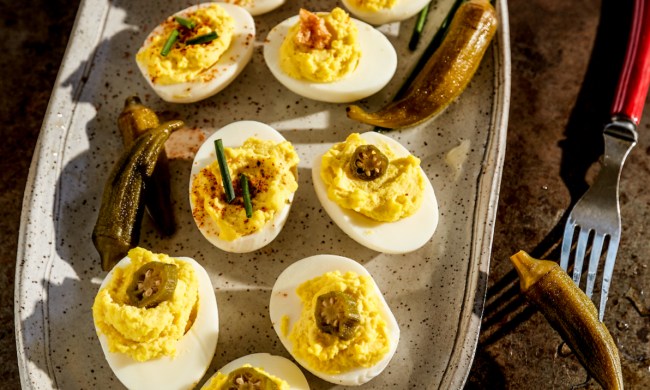It’s a Saturday in summer, and the line to Barrio Bread in Tucson has already formed. The shop won’t open for another 45 minutes, but that doesn’t keep dozens from lining up outside, most carrying umbrellas to fend off the harsh desert sun. The scene is pretty typical, as the James Beard Award-winning baker behind the project has been focused as much on community and equity as delicious regional bread.
Barrio Bread is more of a movement than a brand. It was born in a garage and has grown to two Arizona locations, along with a line of grains, online courses, and more. What’s best? Barrio Bread focuses on local ingredients and fairness across the board, treating every member of the grain chain with respect.
For Barrio Bread founder Don Guerra, it all started with some family bread. He recalls homemade tortillas growing up and quickly gaining a genuine appreciation for fresh-baked breads. Down the line, he moved to Flagstaff to pursue anthropology but found himself working in a bakery on day two. The role fit him nicely.
“Baking matches who I am,” Guerra said. “It’s art, science, physicality. There’s a commitment element, too, about seeing something through to the end.” By the time he was in his 20s, he was running a bakery and looking after employees. “I got in over my head,” he admitted. “I couldn’t manage or lead and didn’t really understand systems.” So Guerra went back to school, a move he credits as one of the best of his life.
What is equity in baking?

Food equity involves fairness and social justice weaved into the entire system, from farming to selling the finished product in a way that’s accessible to all. Guerra refers to his project, as first and foremost, a community-supported bakery. That means it starts and finishes local, bringing on a growing lot of area grain producers and appealing to all levels of the socioeconomic hierarchy.
“I’m less concerned about competition and more concerned about collaboration,” Guerra said. He’s close with his entire bread-making family, from farmers and seed starters to his staff and the customers who buy his work.
Guerra recalls his early days of baking, where he would source industrial flour for efficiency’s sake. “But you never knew what was in there,” he said. He started asking the big question, one that continues to power his business today: Where does it come from and who does it benefit? That’s a driving question in food equity and one Guerra cares about deeply.
Now, he sources local grains and showcases the Sonoran desert terroir via baguettes, durum, heritage loaves, and more. He’s earned grants from the USDA and used them to leverage the local bread economy, planting new test rows and bringing back some ancient native grains. He’s constantly recruiting like-minded people and is all about outreach. Guerra calls himself, quite deservedly, a “breaducator.”
The Barrio Effect

“I’ve created a regional bread,” Guerra said. It couldn’t be more true. Guerra tells a story about a place through food. His loaves even look like the desert landscape, showing the earthy hues of the Sonoran desert. “The bread can even have sharp corners, inspired by the landscape and almost like a cactus,” he explained.
And that bread employs and feeds members of the region. That bread inspires collaboration between fellow industries like craft beer. That bread is delicious, for certain, but also accessible. His work is available to all, from tourists and bakery-goers to those with food stamps at the local farmers market.
A mentor once told Guerra that his model is hyperlocal with global adoption. In other words, it’s an organically sustainable system, one that revolves around tried-and-true old methods of agriculture and looking out for your fellow human, not to mention the planet. That means Barrio Bread is etching out a legacy that will persist for generations to come, and hopefully infiltrate other sectors of the food realm.
Barrio Bread is showing the world that bread, and a lot of foods and agriculture in general, is about way more than grains, yeast, and an oven. It’s about a community of purveyors and tending to their needs. It’s about local ingredients unique to their native home. It’s about co-ops, connecting with your area farmers, and organizations like Native Seeds Search. When all of these facets are cared for, the community is well fed.
What can consumers do in the meantime? “Ask questions,” Guerra said. “Inquiring about what you’re eating and where the material comes from is a kind of strength.”
Check out our sibling features on brands giving back and how to make bread at home. And the pandemic may be behind us but it’s still fun to make sourdough bread. Here’s to food that’s not only delicious, but fair.



